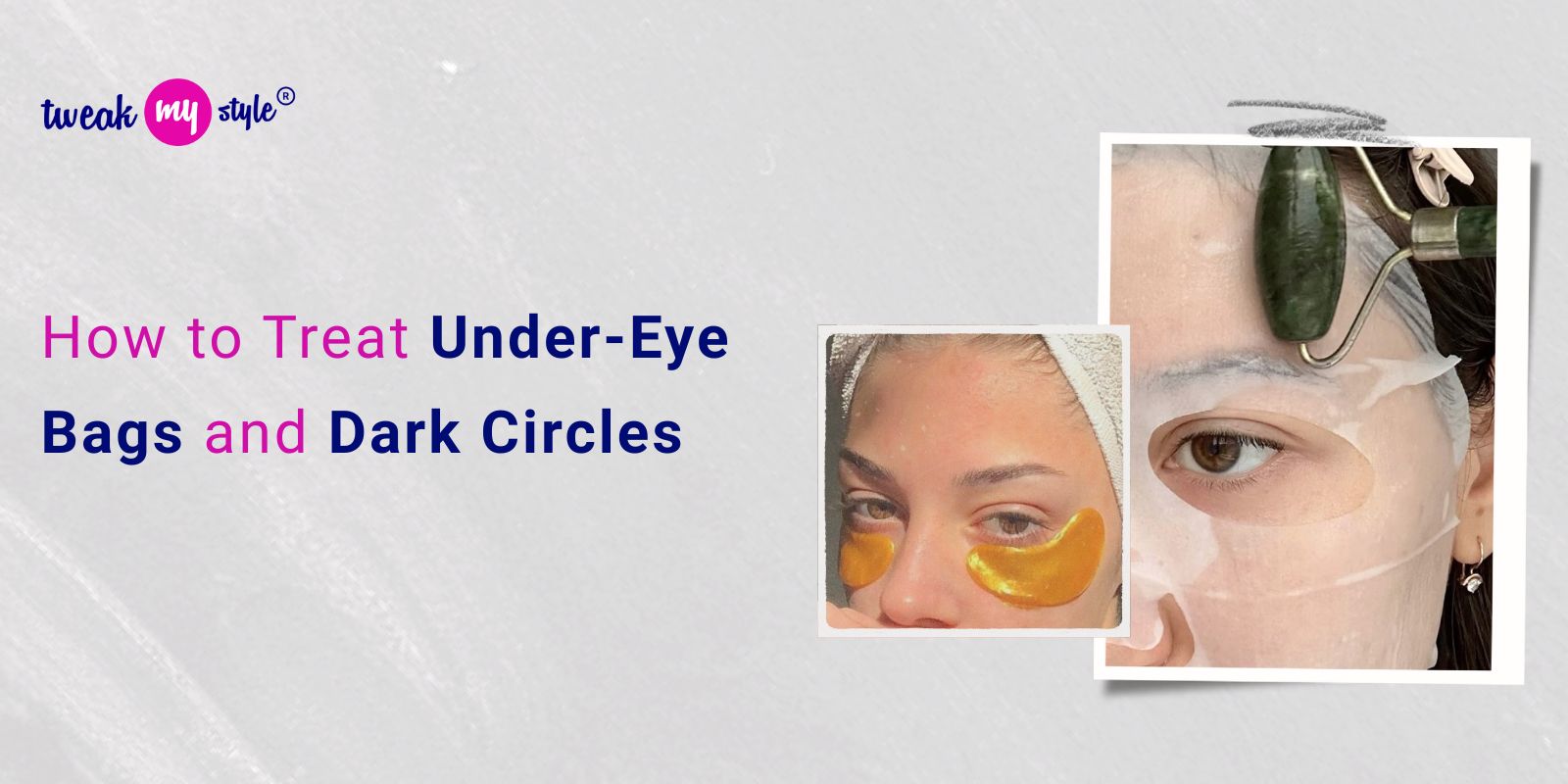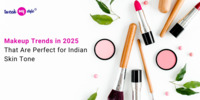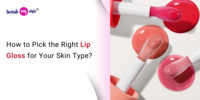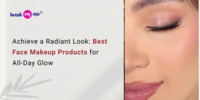- Jun 10, 2025
- Skincare Tips
- 888
Share this post on:

Those tired-looking eyes are more than just a morning inconvenience. Under-eye bags and dark circles can make you look older, more stressed, and generally unwell. While they’re often a normal part of aging, they can also be influenced by a variety of factors, many of which are within your control. This comprehensive guide will break down the causes of under-eye bags and dark circles, and provide a wealth of practical tips and treatments to help you achieve brighter, more youthful-looking eyes.
Understanding the Enemy: What Causes Under-Eye Bags and Dark Circles?
Before diving into solutions, it's crucial to understand what's causing the problem. The causes are often complex and can involve a combination of factors. Let's categorize them:
1. Under-Eye Bags (Puffy Eyes):
- Fluid Retention (Edema): This is the most common culprit. Gravity pulls fluid downwards, particularly when lying down, leading to puffiness.
- Allergies: Allergic reactions (seasonal allergies, food allergies, contact dermatitis) trigger histamine release, causing inflammation and fluid retention. This often manifests as puffy, itchy eyes.
- Lack of Sleep: Sleep deprivation disrupts the body's natural fluid balance.
- Sodium Intake: High sodium intake leads to water retention.
- Genetics: Some people are simply predisposed to under-eye bags due to their facial structure or skin thickness.
- Age: As we age, the skin loses elasticity, and the muscles supporting the eye area weaken, making it easier for fat to bulge.
- Medical Conditions: Kidney problems, thyroid issues, and other medical conditions can contribute to fluid retention.
2. Dark Circles:
- Thin Skin: The skin under the eyes is incredibly thin – thinner than anywhere else on the body. This makes blood vessels more visible, resulting in a dark appearance.
- Loss of Collagen & Elastin: Aging reduces collagen and elastin, further thinning the skin and making those blood vessels even more prominent.
- Sun Exposure: Sun damage weakens the skin and increases pigmentation, darkening the under-eye area.
- Hyperpigmentation: Increased melanin production due to genetics, sun exposure, or inflammation (like eczema) can cause dark circles.
- Iron Deficiency (Anemia): Lack of iron can lead to reduced oxygen in the blood, causing blood vessels to appear more visible.
- Allergies: Similar to under-eye bags, allergies can cause inflammation and dilated blood vessels.
- Dehydration: Dehydration can make the skin appear dull and sunken, emphasizing dark circles.
- Smoking & Alcohol: These habits damage collagen and dehydrate the skin.
- Genetics: Dark circles can be hereditary.
Your Toolkit: Treatments and Solutions
Now that we know the 'why,' let's explore the 'how' to tackle these concerns. We'll break down treatments into categories: Lifestyle, Home Remedies, Over-the-Counter Products, and Professional Treatments.
1. Lifestyle Changes: The Foundation of Healthier Eyes
These are often overlooked, but they’re crucial for long-term improvement.
- Prioritize Sleep: Aim for 7-9 hours of quality sleep each night.
- Hydrate: Drink plenty of water throughout the day. Carry a water bottle and sip regularly.
- Reduce Sodium Intake: Be mindful of processed foods and added salt.
- Limit Alcohol & Avoid Smoking: These habits accelerate aging and dehydrate the skin.
- Elevate Your Head While Sleeping: This helps prevent fluid from pooling under the eyes. Use an extra pillow.
- Manage Allergies: Identify and avoid allergens. Consider allergy medications.
- Sun Protection: Wear sunglasses with UV protection and apply sunscreen (SPF 30 or higher) daily, even on cloudy days.
2. Home Remedies: Simple & Accessible Relief
Many natural remedies can provide temporary relief. Always patch-test any new ingredient on a small area of skin before applying it to the under-eye area.
- Cold Compresses: Apply a cold compress (chilled spoon, ice pack wrapped in a cloth, or cucumber slices) for 10-15 minutes. This constricts blood vessels and reduces swelling.
- Tea Bags: Caffeinated tea bags (green or black tea) contain tannins that can help constrict blood vessels and reduce puffiness. Steep two bags, chill them, and apply them to your eyes for 10-15 minutes.
- Cucumber Slices: Cucumbers have anti-inflammatory properties and can help hydrate the skin.
- Potato Slices: Potatoes contain enzymes that can help lighten dark circles.
- Almond Oil: Almond oil is a natural emollient that can hydrate the skin and reduce the appearance of dark circles. Gently massage a small amount into the under-eye area before bed.
- Aloe Vera: Aloe vera has soothing and anti-inflammatory properties.
3. Over-the-Counter Products: Targeted Solutions
Numerous OTC products can address specific concerns. Look for these ingredients:
- Retinol: Stimulates collagen production and helps thicken the skin, reducing the visibility of blood vessels. Start slowly (once or twice a week) as it can be irritating.
- Vitamin C: A powerful antioxidant that brightens the skin and protects against free radical damage.
- Hyaluronic Acid: A humectant that draws moisture to the skin, plumping it and reducing the appearance of fine lines and dark circles.
- Niacinamide: Helps reduce hyperpigmentation and improve skin tone.
- Caffeine: Constricts blood vessels and reduces puffiness.
- Peptides: Help stimulate collagen production and improve skin elasticity.
- Eye Creams with Ceramides: Ceramides help restore the skin's barrier function, making it more resilient.
- Brightening Serums: Look for ingredients like kojic acid or licorice extract to help fade dark circles.
Choosing the Right Product: Consider your skin type and specific concerns. Sensitive skin requires gentler formulations.
4. Professional Treatments: Advanced Options
When OTC solutions aren't enough, consider these options:
- Chemical Peels: Can help exfoliate the skin and reduce hyperpigmentation.
- Laser Resurfacing: Stimulates collagen production and reduces the appearance of dark circles and wrinkles.
- Fillers: Hyaluronic acid fillers can be injected to add volume under the eyes, reducing the appearance of dark circles and hollows. This is a more invasive option and requires a skilled professional.
- Blepharoplasty (Eyelid Surgery): Surgical removal of excess skin and fat from the eyelids can significantly reduce the appearance of under-eye bags. This is a permanent solution but involves risks and recovery time.
- Microcurrent Facials: Can help tone and lift the eye area.
Important Considerations & When to See a Doctor
- Consistency is Key: Most treatments require consistent use over several weeks or months to see noticeable results.
- Patch Test: Always patch test any new product before applying it to the under-eye area.
- Don't Rub Your Eyes: Rubbing can damage the delicate skin and worsen dark circles.
- Be Realistic: Complete elimination of under-eye bags and dark circles is often difficult, but significant improvement is possible.
- See a Doctor If: You experience persistent or worsening under-eye bags or dark circles, especially if accompanied by other symptoms like swelling, redness, or pain. They could be a sign of an underlying medical condition.
Conclusion: A Brighter Future for Your Eyes
Treatment of under-eye bags and dark circles requires a multifaceted approach. By understanding the underlying causes and incorporating lifestyle changes, home remedies, OTC products, and potentially professional treatments, you can significantly improve the appearance of your eyes and regain a more youthful and refreshed look. Remember to be patient, consistent, and realistic in your expectations, and consult with a dermatologist or doctor if you have any concerns.










